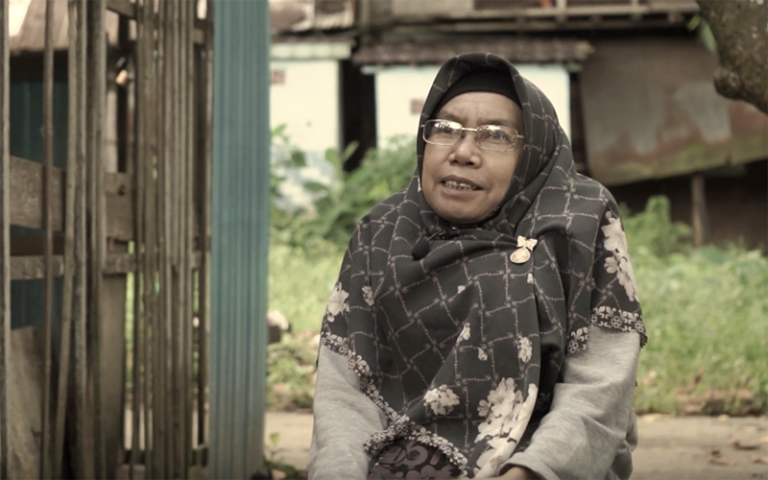MSc SDP and NGO Kota Kita launch nine new videos as part of the Inclusive Citizenship Series
29 April 2021
The Inclusive Citizenship Series is a collaboration between Kota Kita's Urban Citizenship Academy and the MSc Social Development Practice, to advance inclusive design and planning in Indonesian cities through a process of remote knowledge co-production.

Made as part of the Overseas Practice Engagement, the aim of the videos is to learn from community actors and various Organisations of People with Disabilities, giving a sense of place for international students unable to travel, and to document the work on inclusive planning and design on the ground.
The overarching video defines Organisations of People with Disability as representative groups organised by persons with disabilities to ensure the fulfilment and protection of disabled people’s rights. We hear from Purwanti, who is the Advocacy and Networking Coordination in SIGAB, a disability-inclusive advocacy movement and network established in 2003.
“The COVID-19 pandemic has provided the momentum for us to gather and build a stronger network with fellow ODPs across Indonesia. New online tools have allowed us to extend our reach even more. However, there are challenges in terms of advocacy, because the government requires a direct meeting with an audience. The issue with webinars and Zoom meetings is that we have received very different responses. With in-person meetings, we might even be able to develop an action plan, but with video conferences, it is very different.”
Two further videos introduce the cities of Solo, Central Java and Banjarmasin, South Kalimantan from the perspective of disabled dwellers. In the Banjarmasin City Profile we hear from Slamet Riyadi, the chairman of the Indonesian Association of People with Disabilities (PPDI) in Banjarmasin.
“The challenge is how we can build Banjarmasin as an inclusive city. A city where people with disabilities can easily access public services, where they have convenient access to health facilities and can sort out their administrative affairs without any trouble.”
These are accompanied by six videos which each explore a neighbourhood in the two cities. Pajang neighbourhood is one of six neighbourhoods being examined by students.
Purwanto is a resident of Pajang. He is a masseur and secretary at Pertuni Solo:
“In terms of accessibility (…) those with visual impairment who are here for the first time will probably need time to become more familiar and oriented with the surroundings. There are still lots of things to improve about safety in Pajang. One example is street and sanitation infrastructure development. A lot of water sanitation tunnels are built at the same level as pedestrian sidewalks. This is dangerous for those of us who have visual impairments, as the road-side is next to the open tunnels”.
The engagement aims to foster learning between students from the MSc Social Development Practice and Urban Citizenship Academy about disability and inclusive public space in Indonesian cities, by learning from (and contributing to) Indonesian Organisations of People with Disabilities and low-income neighbourhoods in Banjarmasin and Solo. Partners also include Universitas Sebelas Maret and Universitas Lambung Mangkurat.
The videos were commissioned by Ignacia Ossul-Vermehren (UCL) as part of the Overseas Practice Engagement, and produced by Hasanatun Nisa Thamrin, Nina Asterina and Vanesha Tio Manuturi from Kota Kita. The work in the Overseas Practice Engagement is part of the action research project ‘AT2030 Community Led Solutions’ led by Julian Walker.
COVID-19 protocol was followed in the filming of these videos.
You can find all the videos in DPU´s YouTube Channel.
 Close
Close

